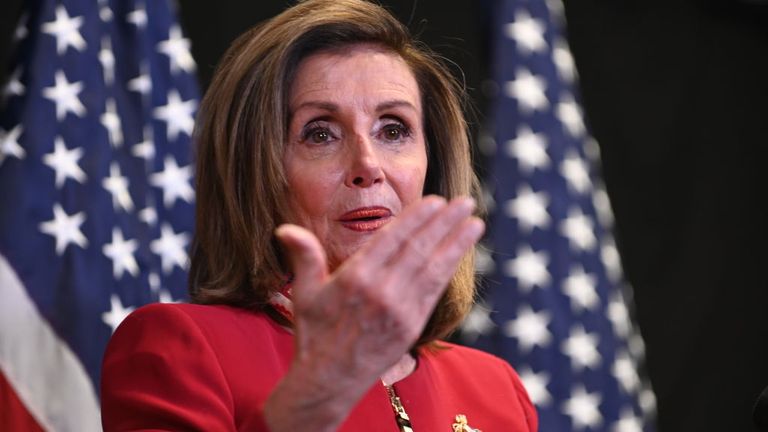All eyes are on the battle for the White House but it’s not the only contest being fought in the US right now.
The arguably almost equal prize of control of the Senate is also up for grabs.
The Senate is the upper chamber of Congress, which has the power to ratify treaties, confirm senior government appointees and judges, as well as introducing legislation – and its political make-up is hugely significant for the future of the country.
Currently under Republican control, the Democrats had been predicted to possibly win the Senate this time, and have made gains in Colorado and Arizona, but have so far failed to flip the states needed to gain a 51 seat majority.
Just over a third of Senators are fighting for their seats in this election and Democrats need to net three if Mr Biden captures the White House to gain control of all of Washington for the first time in a decade.
Becoming president without control of the powerful upper house, would mean Mr Biden would be hamstrung at every turn in introducing new Democratic policies and overturning others – unable to pass key legislation on issues he has campaigned on, such as healthcare, climate change and immigration.
And on the flipside, if Mr Trump remains president a Democrat-controlled Senate could stall some of his more conservative policies.
A gridlock in the Senate always stalls legislative progress and has recently meant very little headway has been made on things like economic recovery during the coronavirus pandemic.
The Democratic drive to win control of the US Senate appears to, at the moment, be falling short, with
the party picking up only one Republican-held seat while six other races remained undecided early on Wednesday.
:: Subscribe to the Daily podcast on Apple Podcasts, Google Podcasts, Spotify, Spreaker
Democrats defeated Republican senators Cory Gardner of Colorado and Martha McSally of Arizona but lost the Alabama seat held by the Democrats’ Doug Jones.
Four Republican incumbents – Joni Ernst of Iowa, Steve Daines of Montana, Lindsey Graham of South Carolina and John Cornyn of Texas – seem to have fended off Democratic challenges.
Republicans also held on to an open seat in Kansas.
All told, 35 of the Senate’s 100 seats are up for election.
The lower chamber of Congress is the House of Representatives, which has 435 members. Democrats have retained control – only the second time in a quarter century that they’ve led the chamber for two consecutive two-year Congresses.
House Speaker Nancy Pelosi said: “Our purpose in this race was to win so that we could protect the Affordable Care Act and that we could crush the virus.”


